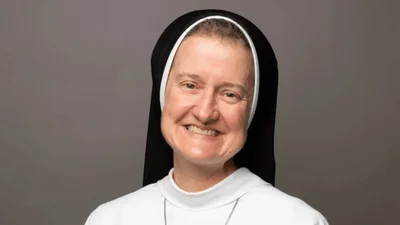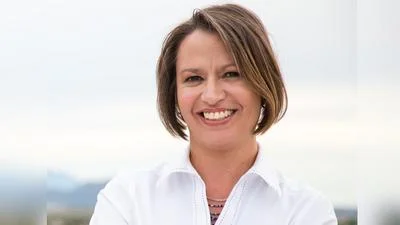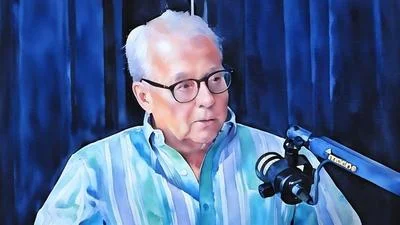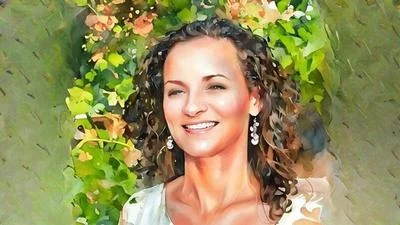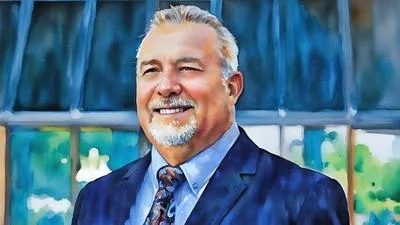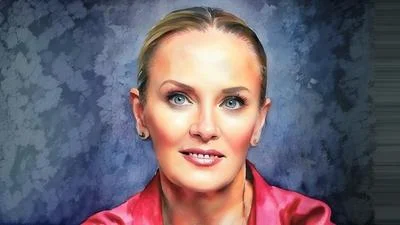Dr. C. Nathaniel Roybal, founder of Retina Consultants of New Mexico, embodies a blend of medical expertise and deep-rooted commitment to his community. Born and raised in Mora, a verdant valley in northern New Mexico, Dr. Roybal’s journey from a ranch kid to a leading retina specialist is as inspiring as it is grounded in the unique culture of his home state.
“New Mexico is home,” he says. "Every time I fly back, I feel it in the air and the dirt. It’s something sacred.”
His upbringing in Mora’s tight-knit community, surrounded by generations of teachers in his family, instilled a sense of responsibility and connection to others. “My parents and sisters are still in Mora. It’s a place where people know each other, where they care about your story.”
This sense of belonging has been a cornerstone of Dr. Roybal’s medical career. After an impressive 20 years of education and training—spanning institutions like UCLA, UC San Diego, and the University of Iowa—he returned to New Mexico, drawn by a desire to make a difference.
“Medicine is an amazing profession,” he says. “You get to help people, make a great living, and live an incredible life.” His enthusiasm for medicine is clear; "Convince your kids to be doctors—it’s still a fairy tale,” he adds.
Dr. Roybal’s path to becoming a leading retina specialist was not without sacrifices. He recalls a journey that "took a long time.” This included training "stretched over two decades,” and adds “at one point, my mom doubted I’d ever have a real job.”
His path also led him back to New Mexico. "I knew I wanted to dedicate myself to medicine and bring that expertise back home,”
The Joys and Challenges of Practicing in New Mexico
In New Mexico, Dr. Roybal finds himself in an environment unlike any other. “Patients here want to know who you are. They’ll ask where you’re from, who your parents are, what high school you went to,” he explains. “For me, going to work feels like a family reunion. There’s a shared commonality, a bond that makes practicing here special.”
Dr. Roybal’s work spans all stages of life. “Yesterday, I was in the neonatal ICU, treating babies weighing just a couple of pounds. Today, I saw a 97-year-old patient. It’s a privilege to help multiple generations of a family,” he says. “In ophthalmology, many diseases are hereditary. It’s not uncommon for me to treat a grandmother, her daughter, and her grandchild all in the same family. That’s what makes this field so special.”
However, New Mexico’s unique charm comes with significant hurdles. The state faces a critical shortage of physicians. “We’ve lost hundreds of doctors in recent years,” he notes, pointing to high medical malpractice insurance rates and lower Medicaid reimbursement rates as key factors.
“Doctors are a national treasure, and every state is competing for them,” he points out. "New Mexico needs to ask, ‘What can we do to make our state the best place to practice medicine?’”
Dr. Roybal is particularly concerned about how legislative policies impact healthcare providers. “Our malpractice insurance rates are double the national average. This is a $50,000 or $60,000 tax on physicians just to practice here,” he says. “We need reforms to make it feasible for doctors to stay.”
A Passionate Advocate for Change
Dr. Roybal believes small, physician-owned practices like his are vital to addressing healthcare challenges. “Ownership is key. When you put your name on the door, it changes how you treat patients, staff, and the community. It’s the solution to so many problems in healthcare,” he asserts.
According to him, “if we could transition more physicians from being employees to owners, it would transform healthcare. Patients deserve to see the same doctor consistently, building a relationship over time.”
But systemic issues remain. Legislation like New Mexico’s House Bill 11, which has made malpractice insurance more expensive and harder to obtain, is a recurring obstacle. “Medical malpractice suits here can reach punitive damages magnitudes greater than the national average,” Dr. Roybal explains. “We need reforms. In some states, punitive damages in malpractice cases are capped or disallowed. Why not here?”
He stresses that these issues are not just economic but deeply personal. “My parents, my kids, my extended family—I want them to have access to the best healthcare. That’s why I’m here.”
Optimism for the Future
Despite the challenges, Dr. Roybal remains optimistic. “New Mexico is in a difficult situation, but that doesn’t mean we can’t fix it. We need innovation and a change in mindset,” he says. “New Mexicans are resilient. If we work on the pillars of healthcare, education, and safety, we’ll open the floodgates to success.”
Dr. Roybal believes that engaging with the community is critical to inspiring change. “We need to tell the story of medicine and highlight success stories. It’s important for our medical students to hear doctors say, ‘I love it here. I love my patients. I’m doing well.’ That’s how we retain talent.”
He encourages aspiring doctors to consider the rewards of practicing in the state. “I love it here. I love my patients. We need more voices saying, ‘This is awesome,’ to inspire the next generation,” he says.
As for his own practice, Dr. Roybal is growing his team and looking to the future. “We’re bringing on more doctors. It’s a great time to build a practice,” he shares. “But we must ensure the system supports us. Medicine has to be profitable to exist. Without it, there’s no healthcare.”
A Vision for New Mexico
“We can’t quit,” he says. “We’ve got to push forward. Every New Mexican has a role in this. Together, we can do better.”
He also knows the importance of economic development to improve healthcare access. “We need to stop thinking of profits as a bad thing,” he says. “Profits drive innovation, better equipment, and better staff. Without them, the system collapses.”
His perspective on rural healthcare is particularly insightful. “Rural hospitals are struggling because general surgeons and other specialists often face unrealistic expectations,” he explains. “We need programs that support these doctors, allowing them to take breaks and recharge. Our universities and training programs can play a crucial role in this.”
As the legislative session approaches, Dr. Roybal hopes for meaningful discussions on healthcare reform. “Let’s not shy away from tough topics,” he urges. “Let’s bring issues to a vote and let New Mexicans decide the future of healthcare in our state.”
“This is our home,” he says. “Let’s make it the best it can be.”




